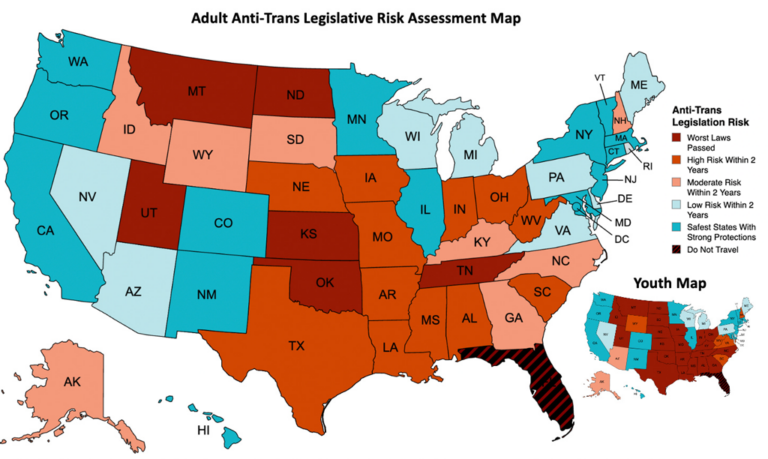Geography and the Neoliberalizing Academy

The role of post-secondary educational institutions in our ecology of knowledge production is shifting rapidly. Our Association must pay close attention to these shifts in its upcoming long-range planning process, given its 110 year commitment to representing the interests of academic/professional geographers. These changes, currently dominated by neoliberalization, will challenge Geography’s ability to maintain its distinctive diversity of intellectual traditions, will challenge the ability of new generations of geographers to enter the profession in traditional ways, and may challenge universities themselves as the locus of critical reflection on the world.
In Europe and North America, universities are rapidly moving away from Wilhelm von Humboldt’s model of a state-organized institution for prosecuting the Enlightenment: an institution, divided into disciplines, providing both public education and space for critical reflection. That space always has been one of tension between state agendas and intellectual freedom; when universities become the locus where thought generates protest they often are targeted for oppression. It has also long been a space to which the wealthier have had privileged access. Nevertheless, public support for these institutions underwrites the possibility for an institution somewhat engaged in societal critique.
The U.S. public universities, where so much of our academic Geography is located, are losing that public support. Neoliberalization means that academic knowledge production increasingly is treated as a commodity, whose value is to be determined in the market. Further, the austerity turn in contemporary neoliberalism means that universities can only expect federal and state scale public support to further decline, reinforcing the necessity to raise external funding from students’ pockets, research grants, Massive Open Online Courses or MOOCs (they hope), foundations and donors. At the same time our universities no longer see themselves as national institutions but compete globally, ranked annually by world university ranking initiatives and strategizing about how to game and move up these rankings. As in the debate over the U.S. departmental rankings by the National Research Council (whose representatives never responded to my request to discuss how Geography was treated), all suchrankings can readily be criticized on academic grounds—but nevertheless are normalized as those who come out on top trumpet their success. Compounding these vectors of commodification and competition are neoconservative agendas skeptical of any scholarship whose findings do not conform to prior beliefs (or market logics).
We know how this turn to the market is shifting the culture of academic institutions. Salary and wage inequalities (defended on the basis of labor market trends) are increasing—between the “stars” and others within a discipline and department, between disciplines, and between executives and employees. The salary of The Ohio State University’s president exceeds that of his lowest earning employees by the order of 100:1; Penn State University’s departing presidentreceived a golden parachute that was even larger after the Sandusky scandal, according to The Chronicle of Higher Education, May 17, 2013, (tiered subscription model). Part-time academic labor is substituted for full time professors, reducing universities’ wage and benefits costs while enhancing flexibility. Students are thought of as customers to be satisfied, rather than minds to be challenged. The business sector is cultivated, as both a research partner and a customer for those who graduate. The faculty increasingly is assessed for their entrepreneurial acumen: How much grant money have you raised? How many patents have you produced? How many citations have you garnered? How much tuition revenue has your teaching generated? This neoliberalization varies by national context (by comparison to many European countries, U.S. public universities are more insulated from national-scale pressures due to the federalized nature of U.S. post-secondary education), but is pervasive.
What does this neoliberalization of the academy mean for Geography, here and elsewhere? First, it challenges Geography’s academic integrity and distinctiveness. As I have argued in previous columns, Geography is at its best—both for its practitioners and for society—when we make the most of, by engaging critically and constructively across, our diversity to offer critical insight into some of the world’s most wicked problems. Yet the possibility of such mutuality is undermined by neoliberalization. The subfields of Geography best placed to raise (in part because they require) substantial research funds, publishing large numbers of short multi-authored articles, are likely to prosper even as others whither (undermining the status of philosophical, qualitative and cultural geographic research). Further, those in favored subfields face incentives to decamp from Geography altogether to other, better remunerated and less teaching-oriented, areas of the academy.
Second, it challenges Geography’s capacity as a space for critical reflection on future earth. Neoliberalization implies that the wisdom of markets can determine this future—I beg to differ. One of the most exciting features of anglophone geography in recent decades has been the ways in which rigorous scholarship engages with a willingness to raise fundamental questions about society (e.g., climate change and climate justice, and the consequences of globalizing capitalism). But such thinking often challenges the wisdom of markets. As U.S. universities are enjoined (e.g. by the National Research Council) to partner with the private sector and to prioritize job market skills in the curriculum, this reduces the space for such critical reflection.
Third, it challenges Geography’s capacity to reproduce itself. Neoliberalization and austerity have been accompanied by a deterioration of traditional paths to secure academic employment, underwriting intellectual freedom. The U.S. is experiencing a turn to part-time teaching and limited term postdoctoral research positions (postdocs arguably make cheaper research assistants than Ph.D. students). In Germany and Austria, the possibility of advancing from Assistant to Full Professor within a department has all but disappeared. This deterioration discourages the best young geographical minds from entering the academy, also raising questions about the role of our graduate programs.
Finally, it challenges the geography of academic knowledge production. North American and European universities are already outpaced in numbers of graduates by Asian universities, whose hybrid “visible hand” societies still prioritize investment in post-secondary education—albeit prioritizing job skills and professional training. There is an irrepressible desire in the U.S. academy to worry about our “research 1” universities, but it is possible that these pressures to commodify academic knowledge may enable smaller and more peripherally located institutions—whose overburdened faculty connect more directly with the lives of average Americans—to become more open to critical scholarship.
Will colleges and universities even remain the spaces where the most creative and vital knowledge is produced? If not, how will this move beyond the academy?
The neoliberalization of the academy is rooted in broad-ranging processes, discourses and practices, which seem beyond the scope of our Association. It would be a profound failure, however, to consider these as external forces that we are compelled to conform to. Rather, as we consider our future, it will be vital that the Association be proactive in identifying trends inimical to our discipline, and to academic freedom more generally, and work with our members and other academic associations to contest these.
Let me know what you think.
–Eric Sheppard


